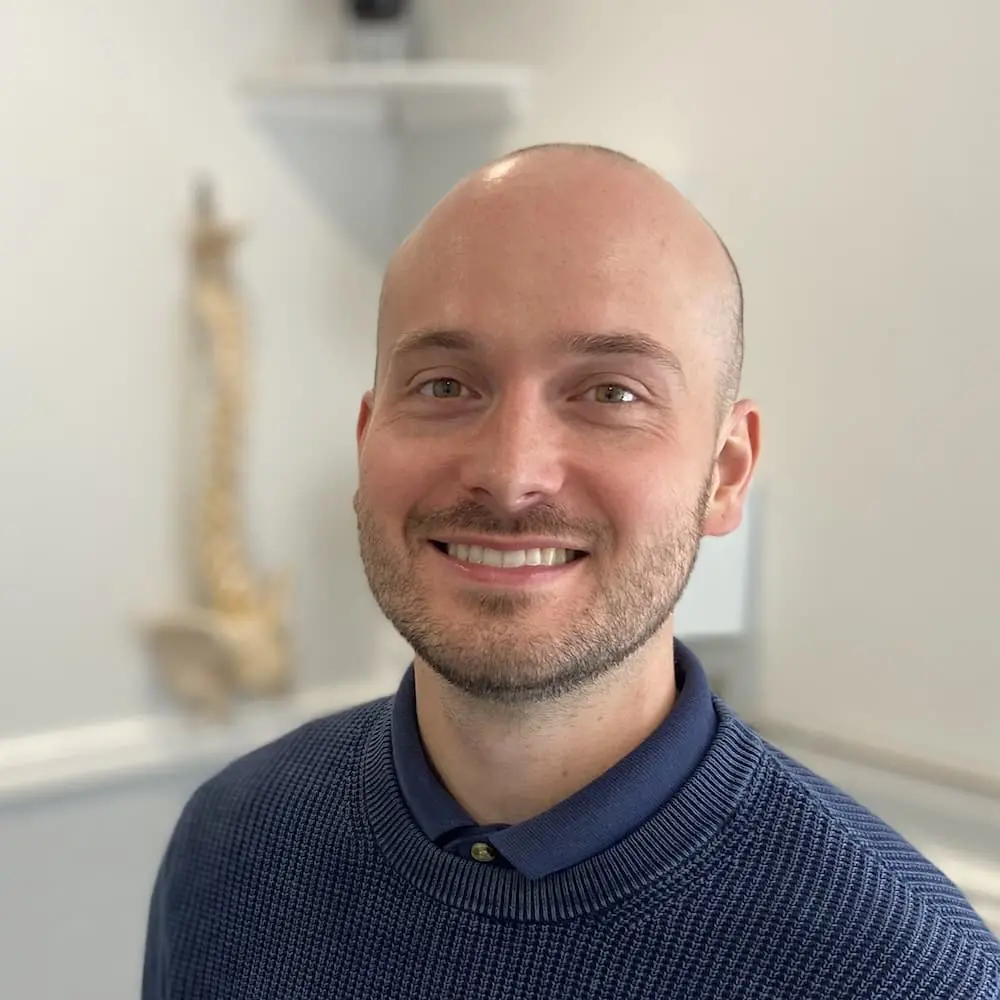Achilles Pain
What conditions are associated with Achilles pain?
Achilles pain can be caused by various conditions, primarily related to overuse, injury, or degeneration of the Achilles tendon. Some conditions associated with Achilles pain include:
- Achilles Tendinitis: Inflammation of the Achilles tendon often due to repetitive stress or sudden increase in activity.
- Achilles Tendinopathy: Degenerative changes in the tendon’s structure, typically from chronic overuse without adequate rest or healing.
- Achilles Tendon Rupture: A complete or partial tear of the Achilles tendon, which can be due to a sudden force or movement, like sprinting or jumping.
- Retrocalcaneal Bursitis: Inflammation of the bursa, a small fluid-filled sac located between the Achilles tendon and the heel bone.
- Haglund’s Deformity: A bony enlargement on the back of the heel bone, which can lead to bursitis and irritation of the Achilles tendon.
- Insertional Achilles Tendinitis: Inflammation where the Achilles tendon attaches to the heel bone, often associated with bone spurs.
- Systemic Conditions: Some systemic conditions, like rheumatoid arthritis or lupus, can cause inflammation of various tendons, including the Achilles.
- Medications: Certain medications, notably some types of antibiotics (like fluoroquinolones), have been associated with Achilles tendon issues.
- Inappropriate Footwear: Shoes that don’t offer adequate support or have a worn-out heel can contribute to Achilles pain.
What are the symptoms of Achilles Pain?
Achilles pain, stemming from various conditions related to the Achilles tendon, can manifest in several ways. The following are common symptoms associated with Achilles tendon issues:
- Pain: This is typically felt directly over the Achilles tendon, between the heel and the calf. The pain may be sharp or aching, depending on the condition, and can worsen during or after running or other physical activities.
- Stiffness: The Achilles tendon may feel stiff, especially in the morning or after prolonged periods of inactivity.
- Swelling: There might be localised swelling along the tendon or near its attachment to the heel.
- Thickening of the Tendon: Chronic conditions like tendinosis can lead to a noticeably thickened portion of the tendon.
- Decreased Range of Motion: You might notice difficulty in flexing your foot or pointing your toes due to pain or stiffness.
- Warmth and Redness: The area around the Achilles tendon may feel warm to the touch and appear reddened.
- Tenderness: The tendon can become sensitive to touch or pressure, and it may be painful when squeezed.
- Crepitus: There might be a crunchy sound or feeling when the ankle or foot is moved, particularly in tendinosis.
- Weakness: The affected foot might feel weak, especially when pushing off while walking or running.
- Noticeable Gap or Lump: In the case of an Achilles tendon rupture, there might be a gap or lump where the tear has occurred.
- Difficulty in Walking: Particularly in cases of a tendon rupture, there may be significant difficulty in walking or bearing weight on the affected foot.
These symptoms can vary in intensity based on the specific condition, its severity, and individual factors. If you suspect an Achilles tendon issue or experience any of these symptoms, especially suddenly or severely, it’s essential to seek medical evaluation to determine the exact cause and appropriate treatment.
What causes Achilles pain?
Achilles pain arises from conditions or factors that strain or injure the Achilles tendon. Here are the primary causes of Achilles pain:
- Overuse: Engaging in intense physical activities or suddenly increasing the intensity or duration of exercise can lead to inflammation of the tendon (Achilles tendinitis).
- Tendon Strain: Caused by repetitive or intense activities, including running, jumping, or sudden acceleration.
- Achilles Tendon Rupture: A strong force or sudden movement, like sprinting or jumping, can cause a partial or complete tear of the Achilles tendon.
- Inappropriate Footwear: Wearing shoes with inadequate support or a worn-out heel can strain the tendon.
- Foot Mechanics: Overpronation (excessive inward rolling of the foot) can add stress to the Achilles tendon.
- Tight Calf Muscles: Reduced flexibility in the calf muscles can increase strain on the Achilles tendon.
- Bone Spurs: Extra bone growth where the Achilles tendon attaches to the heel bone can rub against the tendon, causing irritation.
- Bursitis: Inflammation of the bursa (a fluid-filled sac) located between the Achilles tendon and the heel bone can cause pain.
- Age: The tendon can weaken and become less flexible with age, increasing vulnerability to injury.
- Certain Medications: Some antibiotics, especially the fluoroquinolone class, have been linked to an increased risk of Achilles tendon issues.
- Systemic Diseases: Conditions like rheumatoid arthritis or lupus can cause inflammation of tendons, including the Achilles.
- Haglund’s Deformity: A bony enlargement on the back of the heel bone can lead to bursitis and irritation of the Achilles tendon.
What is the best treatment for Achilles pain?
Treatment for Achilles pain depends on the specific cause and severity of the condition. Here’s a general overview of treatments for Achilles-related issues:
- Rest: Avoid aggravating activities.
- Pain Relievers: Use over-the-counter options like ibuprofen.
- Physiotherapy: Strengthen and improve flexibility.
- Orthotics: Correct foot mechanics.
- Proper Footwear: Ensure heel support.
- Stretching: Focus on calf and Achilles.
- Immobilisation: For severe injuries, use a boot or cast.
- Surgery: Considered for severe cases or if other treatments fail.
- Gradual Return: Slowly reintroduce activities post-recovery.
Who should I see to fix Achilles pain?
For Achilles pain, consider seeing:
- Physiotherapist: Initial assessment. Provides rehabilitation exercises and techniques to alleviate pain and improve function.
- Your GP: For initial assessment and referrals.
- Orthopaedic Surgeon: Specialises in musculoskeletal issues, including Achilles tendon problems.
Is exercise good for Achilles pain?
Yes, specific exercises can be beneficial for Achilles pain, but they must be done correctly and at the appropriate stage of healing:
- Strengthening Exercises: Eccentric exercises, which involve lengthening the muscle-tendon unit while under load, can help strengthen the Achilles tendon. An example is heel drops on a step.
- Flexibility Exercises: Gently stretching the calf muscles and Achilles tendon can improve flexibility and decrease tension on the tendon.
- Balance and Proprioception Exercises: These can help improve stability and reduce the risk of re-injury.
- Low-Impact Activities: Swimming and cycling can maintain cardiovascular fitness without putting excessive strain on the Achilles tendon.
It’s crucial to introduce exercises slowly and under the guidance of a physiotherapist or medical professional, especially when recovering from an injury. Aggressive or inappropriate exercises can exacerbate the condition.
Will I need surgery for Achilles pain?
Not always. Surgery for Achilles pain is typically considered when:
- There’s a complete rupture or significant partial tear of the Achilles tendon.
- Conservative treatments (like physical therapy, rest, medication) haven’t improved the condition after several months.
- There are persistent, degenerative changes in the tendon (chronic tendinosis) not responding to non-surgical interventions.
- Bone spurs or other structural issues are causing tendon irritation.
Many cases of Achilles pain can be effectively managed without surgery. Consultation with an orthopaedic surgeon or physiotherapist can provide a clear recommendation based on the specifics of your condition.
Chews Health top tip for Achilles pain
Our Specialists
Posted onTrustindex verifies that the original source of the review is Google. Tennis elbow pain issue resolved in 3 physio - therapy sessions with Richard Saxton. Back to Badminton and Cricket as normal. Many thanksPosted onTrustindex verifies that the original source of the review is Google. I was referred to Chews Health for shockwave therapy for long term IT Band syndrome. Jon Shurr was excellent at talking me the through the process, setting my expectations and listening to my concerns. I just expected to receive the intervention with Jon but what I actually got was a patient-centred, holistic approach to my condition. Jon was excellent at setting physical challenges to test my knee pain and amending approaches when needed. Having completed my course of shock wave therapy I am feeling the improvements and continue to challenge my knees!! I am so pleased with the success of this therapy and am very grateful to Jon.Posted onTrustindex verifies that the original source of the review is Google. Outstanding care and a well-tailored set of stretches and exercises to address my problems and to keep me in shape. Thank you, Jack!Posted onTrustindex verifies that the original source of the review is Google. I have had a great experience here. I went for a knee injury and they’ve helped me so much build my strength back up. I would definitely recommend. The staff are lovely and really care about your improvements and your injury. Very thankful!Posted onTrustindex verifies that the original source of the review is Google. Highly recommended. My Physio (Jack initial assessment and follow up with Fio) completely understood the issue and worked with me to fix the issue. Thanks for you help.Posted onTrustindex verifies that the original source of the review is Google. I would highly recommend Chews Health. I have seen Jon for help with improving muscle strength in my arms and legs. I am in late 70's and presently seeing him every week because of hip pain. The exercises are helping me cope with an ongoing problem. Thank you. DotPosted onTrustindex verifies that the original source of the review is Google. Jack was incredibly helpful in advising on, and treating, my knee injury which was preventing me from training for the Manchester marathon. Jack was able to explain the cause in a really clear way and created a bespoke training and physio plan which enabled me to run the marathon without the level of pain I had been experiencing. Jack has also significantly improved my running form through his advice and the use of the high tech equipment and analysis software available in each session. Thanks to Jack for enabling me to complete the marathon (and enjoy it!) and for continuing to support on my running journey!Posted onTrustindex verifies that the original source of the review is Google. Great service. Jack was honest and straightforward explaining the rationale behind exercises/decisions. Pragmatic approach focused on getting me safely back to sportPosted onTrustindex verifies that the original source of the review is Google. Have waited a few months post-treatment to write a review - just to be certain! Quite simply, I can't recommend these guys highly enough. I went to them with two badly damaged knees (miniscus tears). Having had three arthroscopes over the years, I was completely resigned to needing surgical intervention again. The Chews team had different ideas. After showing me the latest research findings, they assured me my knees could be rehabilitated without a scalpel. I had just a handful of sessions with them and am delighted to report that, six months on, my knees are great! I'm running 5k twice a week (don't laugh, I loathe running and am no spring chicken) without any pain and have taken up tennis. Everyone at Chews is passionate about their subject, knowledgeable, reassuring and friendly. I wouldn't go anywhere else.Posted onTrustindex verifies that the original source of the review is Google. Couldn’t recommend Chews health enough. Jack’s experience and expertise allowed me to identify my problems and gradually build the strength and ability to return to running pain free.Google rating score: 5.0 of 5, based on 116 reviews




